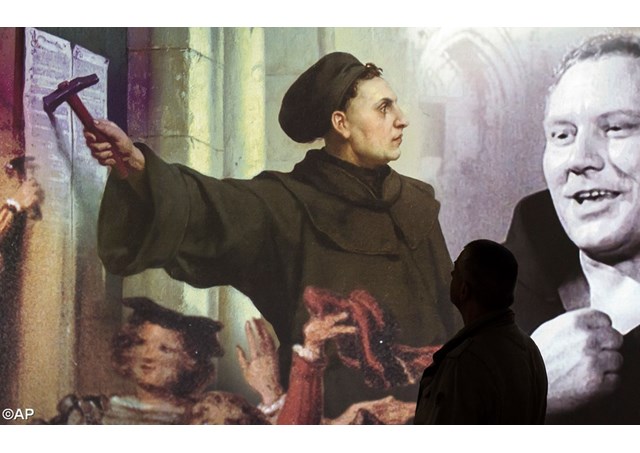
Vatican note on Reformed Churches' signing of Justification Declaration

(Vatican Radio) The Vatican’s Pontifical Council for Promoting Christian Unity has released a note regarding the association of the Reformed Churches to the Joint Declaration on the Doctrine of Justification (JDDJ), calling the occasion an “important milestone”.
The Joint Declaration was signed between the Catholic Church and the Lutheran World Federation in 1999, with the World Methodist Council adopting the document in 2006.
On Wednesday, 5 July 2017 the World Communion of Reformed Churches becomes the fourth party to associate itself to the doctrine on Justification as accepted by Catholics, Lutherans, and Methodists.
“One of the crucial issues of dissent between the Reformers and the authorities of the Catholic Church in the sixteenth century is thus being diffused and overcome, making further growth in spiritual and ecclesial communion between the Protestant and Catholic Churches possible,” the note states.
An ecumenical prayer service held in Wittenberg, Germany by the Communion of Reformed Churches, along with representation by the Vatican and other signatories, marks their association with the Joint Declaration.
The Vatican is represented by Bishop Brian Farrell, Secretary of the Pontifical Council for Promoting Christian Unity, and Fr. Avelino Gonzalez, an official of the Western Section of the same dicastery.
Though a milestone in ecumenical relations and “the full, visible unity of Christians”, the note says the event is “not yet the end of the road but a significant stage on the way.”
Please find below the full statement:
PONTIFICAL COUNCIL FOR PROMOTING CHRISTIAN UNITY
Note on the association of the Reformed Churches to the Joint Declaration on the Doctrine of Justification
Next Wednesday, 5 July 2017, at Wittenberg in Germany, the place where in 1517 the Reformation began when Luther presented his ninety-five theses against Indulgences, the World Communion of Reformed Churches will join the ecumenical consensus already achieved between Catholics, Lutherans and Methodists on the doctrine of Justification. The doctrine of justification by grace through faith is at the heart of the Gospel. Agreement in understanding how the salvation brought by Christ actually becomes effective in sinful humans is of high importance for ecumenical progress. The Reformed Churches will now affirm the consensus in basic truths of the doctrine of justification as corresponding to Reformed doctrine. One of the crucial issues of dissent between the Reformers and the authorities of the Catholic Church in the sixteenth century is thus being diffused and overcome, making further growth in spiritual and ecclesial communion between the Protestant and Catholic Churches possible.
At an ecumenical prayer service, the leadership of the Communion of Reformed Churches will formally associate with the Joint Declaration on the Doctrine of Justification, in the presence of representatives of the Lutheran, Methodist and Catholic Churches. The Pontifical Council for promoting Christian Unity will be represented by the Secretary, Bishop Brian Farrell, and Reverend Avelino Gonzalez, official of the Western Section of the dicastery. The event must be seen as another important milestone on the journey towards the full visible unity of Christians; not yet the end of the road but a significant stage on the way.
The Reformed Churches bring to the ecumenical consensus around this fundamental doctrine a particular concern for the relationship between justification and a commitment to justice in the world. Grace leads to and requires "good works" in bringing about God's kingdom of justice, peace and reconciliation. Justification leads to solidarity with the victims of social disorder and opposition to systems of social and economic injustice. By sharing an understanding of this Christian imperative, Catholics, Lutherans, Methodists and Reformed are able to find wider and more intensive ways of working together in the service of suffering humanity. In this way, ecumenical progress in dialogue is not merely an academic pursuit of interested experts, but has a positive and practical influence on the way Christians of different confessions live and work together in solidarity and bear common witness to the Gospel in society.
| All the contents on this site are copyrighted ©. |


